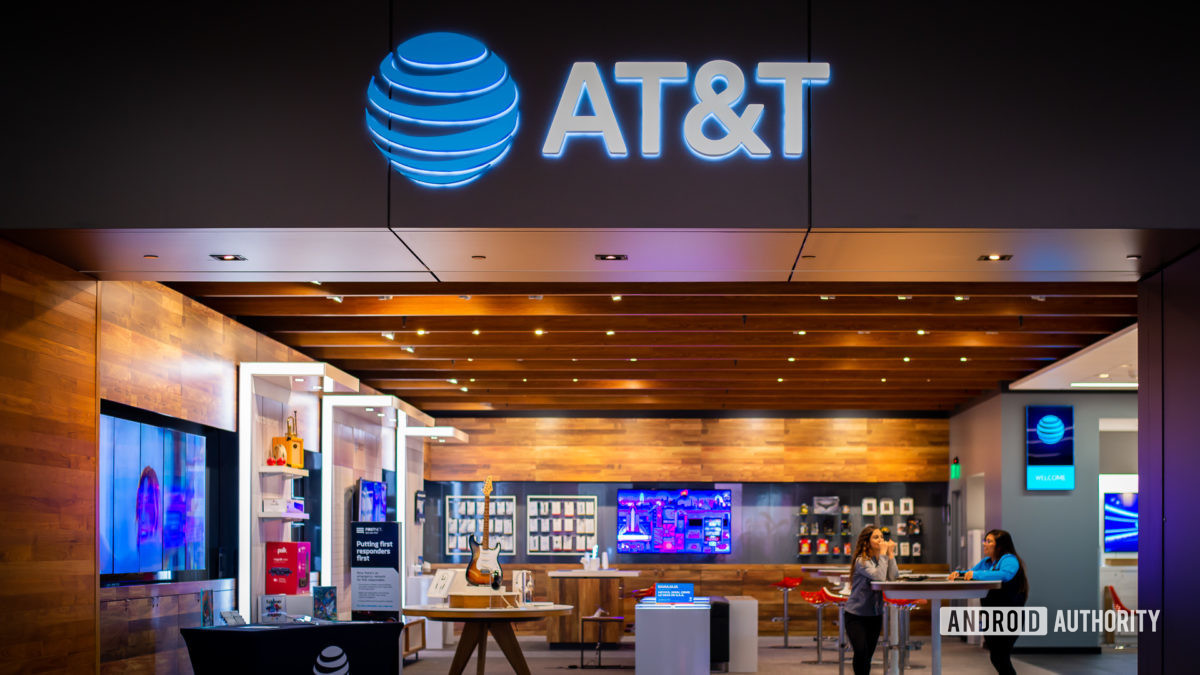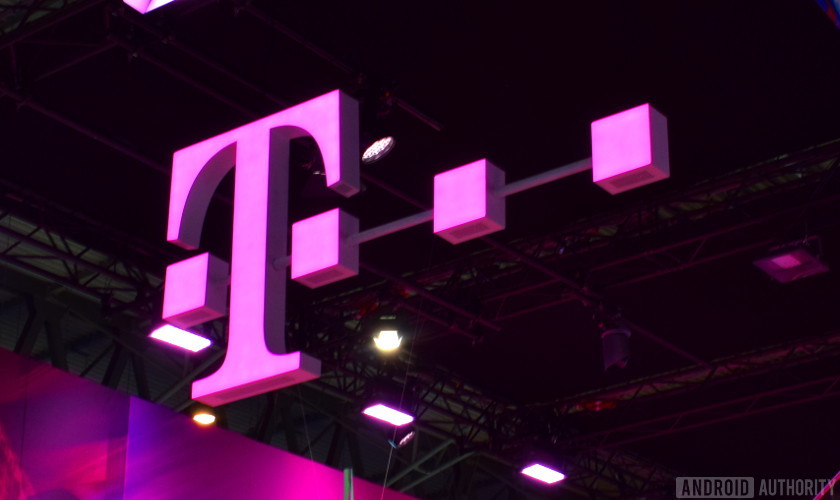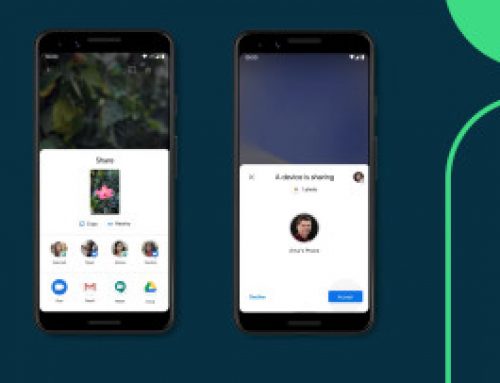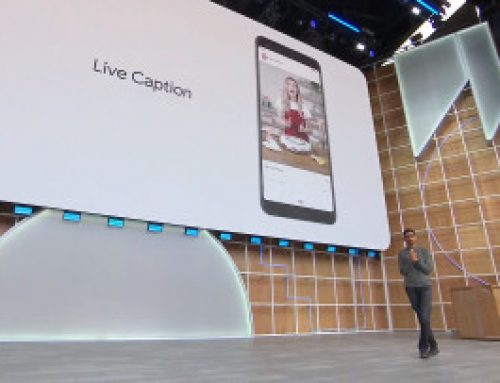
SMS and MMS seem positively archaic by the standards set by today’s popular data based messaging platforms, and the industry could do with a refresh to its default communication standard. Fortunately, carriers are already moving on to the new Rich Communications Services (RCS) standard, and we’re looking a wider roll out to consumers next year.
The basics
As a general overview, RCS is part of the new Advanced Messaging standard designed to greatly improve messaging functionality that comes installed on phones by default. Along with text messages, RCS will also allow for higher quality picture messaging up to 10MB in size, group chats, location sharing, and even video calls by default. The service also appears to support read receipts and typing indicators that you’re probably already familiar with from other services.
Unlike SMS, the new technology can be integrated with contact apps to see who else supports the service, as well as for sharing contacts and groups. RCS is also looking to go beyond the capabilities seen in many of today’s messaging apps. The standard can also be used to share media, location, and other information while you’re already in a telephone conversation.
However, to send and receive Rich Communications Services messages, both parties much be using a compatible messaging app and network, and support is not universal, yet. Fortunately, the system is designed to fall back to SMS or MMS when the recipient doesn’t support RCS.
In theory, the introduction of RCS will avoid the hassle of having to agree to a third party platform for group or video chat, as the service is tied to your mobile number and future phone owners will have these features out of the box. The aim is to provide a consistent interoperable messaging service across mobile device and networks. Well at least for Android, there doesn’t appear to be any work being done to bring RCS to iPhones. Plus Apple already has its popular iMessage service.
 See also: RCS is now rolling out to some Google Messenger users67
See also: RCS is now rolling out to some Google Messenger users67
Meet the Universal Profile
As this new standard is going to expand the default SMS and MMS functionality provided by carriers, these companies also need to get on board with RCS to bring it to a wide range of consumers, and that has proven a little more tricky. Fortunately, RCS is being tied in with the GSMA’s Universal Profile. GSMA is a global association of network operators and companies that works on creating unified standards for the industry. The Universal Profile is a specification which outlines a set of Advanced Calling and Messaging features and how communication services are to be built to support these features.
Participation in the Universal Profile is not necessary to support Advanced Messaging, instead it is designed to expedite the roll out and ensure compatibility. Upcoming smartphones built in conjunction with the program will ship with a built-in Advanced Messaging app, while other developers are free to build global clients to support messaging across all devices and networks, but more on that later.
GSMA states that 156 Advanced Messaging devices are already on the market and 49 mobile operators have launched support
Release 1 of the Universal Profile standard is scheduled to debut on Thursday 17th November 2016 and will cover the core features. These include contact discovery across regions, messaging, group chat, file transfer, audio messaging, video share, multi-device, enriched calling, location sharing, and live sketching. Release 2, which is scheduled for Q2 2017, will focus on the developer end, with APIs, plug-in integration and improved authentication, app security, and entry routes for commerce applications.
 See also: 10 best messenger apps for Android116
See also: 10 best messenger apps for Android116
In the US, Sprint and T-Mobile will support the Universal Profile standard. Verizon has not rolled out its service yet but is listed as an official operator, while AT&T is already using RCS but doesn’t appear to be supporting Universal Profile. We’ll just have to see how this plays out. Vodafone and Deutsche Telekom have most of Europe covered, Claro is bringing the service to Latin and South America, while KT, LG Uplus, and SK Telecom are all signed up in South Korea. A total of 49 national operations have already launched Rich Communications Services, and you can check out this PDF for a list of compatible networks.
Currently, the GSMA states that 156 Advanced Messaging devices are already on the market, and the roll out is targeting 3.5 billion active users. So, there’s a good chance that your smartphone already supports RCS, if it’s a high end model produced in the past couple of years. Ecosystem partners include Alcatel, ASUS, HTC, LG, Lenovo, Samsung, and ZTE, which between them sell a lot of smartphones. Google and Microsoft are the only two OS providers to support the Universal Profile.
Google, Android, and Jibe
Despite all of these names being involved, Google has taken on the responsibility of providing the main platform for this new messaging service. Jibe, which Google purchased back in 2015, has developed a universal Android client based on the Universal Profile for Advanced Messaging. Google is also offering a carrier hosted service for operators to launch and manage Advanced Messaging services with, without having to deploy their own infrastructure. This should expedite the roll out and will ensure service compatibility for all users.
Google’s RCS client for Android supports SMS, MMS, and RCS all in one place and will be updated through the Play Store.
For operators, this “Jibe Hub” offers a simple connection to the global RCS network, so that messages from any device can quickly reach any other, regardless of their network carrier. It also supports access to third-party RCS networks, which some operators may choose to implement rather than relying on Google’s infrastructure, particularly in countries outside of the US.

Google’s Jibe Platform is providing the backbone for the Universal Profile
Google’s upcoming RCS client for Android users will offer support for SMS, MMS, and RCS all in one place, and will be interoperable with any RCS-compliant client on any other smartphone or operator. Perhaps best of all, this application will be hosted and updated through the Google Play Store, so new features can be easily patched in. This also suggests that other compatible handsets that have already shipped will be able to install the client easily. Google also plans to provide an open source version of the client and to release APIs to help enhance the client experience.
When can I starting using it?
RCS is actually already live now, sort of. T-Mobile, Sprint, and AT&T offer some of these Advanced Messaging features through their stock messaging apps on a selection of modern devices, but this deployment is based on pre-Universal Profiles. The latest development has seen Google introduce RCS support with its own Messenger 2.0 app, providing that users are on a supported network and have a compatible device (currently just the Pixel XL and Nexus 6P).
However, GSMA’s Universal Profile is not up and running yet. The first fully certified devices and networks aren’t scheduled to launch until sometime in Q2 2017. Therefore the fully interoperable system isn’t quite ready and so wide reaching compatibility and use of the full feature set cannot be guaranteed. Between now and then, network operators are encouraged to deploy mature systems and begin transitioning toward the full Universal Profile, as will OEM’s. This probably explains why Google has decided now is the time to start testing out these features on its network-agnostic Messenger app.
In other words, the first fully Universal Profile compatible devices and networks arrive until Q2 2017, but that isn’t stopping advanced messaging services from starting up. Much like the roll-out of 4G LTE, carriers and OEM are gradually moving towards realizing the full specification that will see a universal advanced messaging platform deployed across the Android ecosystem, final details of which will be unveiled on November 17th.





Leave A Comment